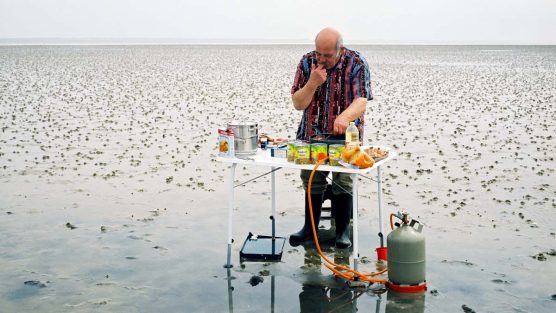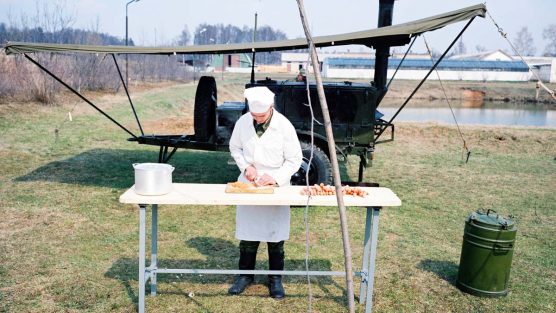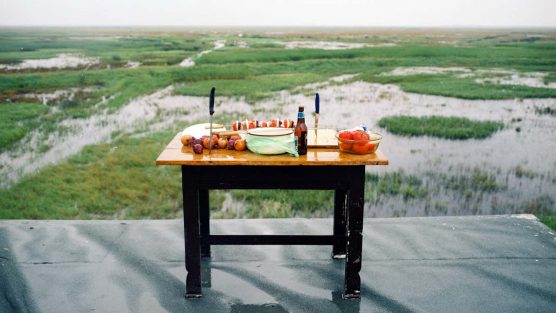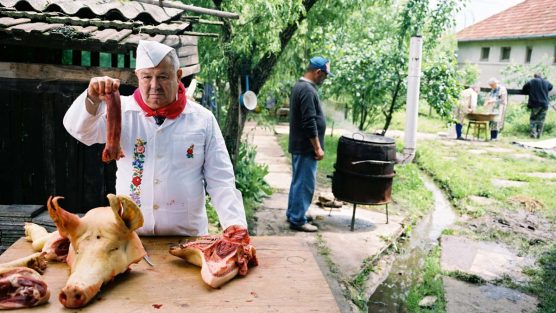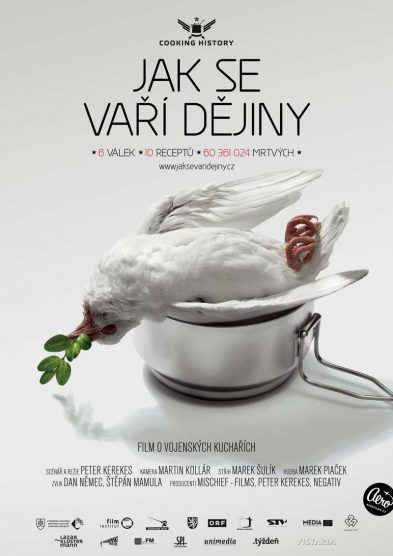
Synopsis
6 wars * 10 recipes * 60 361 024 dead
A documentary about army cooks and how the everyday needs of thousands of armed stomachs affect the victories and defeats of statesmen. The field kitchen functions as a model of a world where food preparation becomes a fight strategy; a fight for great ideals standing on strong legs of the kitchen table. The film is based on eleven meals based on recipes from the Second World War till the war in Chechnya; from France through the Balkans to Russia.
Country
Slovakia, Czech Republic, Germany
Producers
MILAN KUCHYNKA
PAVEL STRNAD
Genre
Documentary
Co-producers
WITH THE SUPPORT OF CZECH FILM FUND
Release Date
23. 4. 2009
Screening Formats
HD CAM
HD FILES
Runtime
88 MIN
Trailer & Photogallery
Cast & Crew
Writer & Director
PETER KEREKES
Cinematography
MARTIN KOLLÁR
Editor
MAREK ŠULÍK
CAST
VASSILIJ NIKOLAJEVIČ LOGUNOV, FRANZ WIENHART, KLAVDIA MATVEJEVNA LOBANOVOVÁ, HEINZ RUDINGER, LIEPKE DISTEL, BÉKÉS MIHÁLY, JACQUES BESSON, RENÉ BIANCHI, LJUDMILA VLADIMIROVNA KORNEVOVÁ…
MUSIC
MAREK PIAČEK
About the film
In a new documentary “Cooking History”, renowned director Peter Kerekes focuses once again on the ancient past and recent present, just as in his previous documentaries (Ladomírské morytáty a legendy, The Legends and Morytates of Ladomirova, 1998; 66 sezón, 66 Seasons, 2004). Through the dramatic stories of military cooks who cooked for soldiers during numerous bloody war conflicts, the creator guides us through different countries, historical eras, events that changed history, and the map of Europe. And by doing so, he also introduces us to the relationships full of paradoxes between people, nations, and countries, which are difficult to resolve even today. Right from the start, people who stood, or rather “cooked against each other” in certain periods of European history, find themselves next to each other and are confronted on the screen: German Franz Wienhart baked bread for the hungry Wehrmacht soldiers when they were winning WW2, although the German army was already retreating. Jew Liepke Distel, who survived a concentration camp, and after the war decided to take revenge on the Germans with what he was missing in the camp – bread… During the Leningrad blockade, Russian Klavdia Lobanova cooked for Soviet pilots who threw themselves into air battles with German planes. Hungarian Békés Mihály prepared food for Soviet soldiers when they were occupying Hungary. Ljudmila Kornevová, on the other hand, cooked for Soviet soldiers during the occupation of Czechoslovakia. Russian Vasily Logunov could not win over the thieves in the war in Chechnya. The two Frenchmen Jacques Besson and René Bianchi disagree in the search for the winner of the WW1, and the Serbian cooks Branka Mudrenić and Ankica Pavlović, on the other hand, agree: “We cooked for our people – and we cooked against the Croats, of course!”

